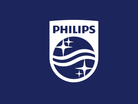Philips company profile: using technology to support health

Royal Philips is a health technology company dedicated to improving people's health and well-being - across encouraging healthy living to sickness prevention, managing diagnosis to supporting home care.
The company was founded in 1891 in Eindhoven, the Netherlands, by Frederik Philips. Now, Philips has over 10,000 employees, works in 100 countries and has a revenue of €19bn.
By 2030, Philips hopes to have improved the lives of 2.5bn people with meaningful innovation, while still acting responsibly towards the planet.
Supporting the health of the nation
In the 1890s, Frederik Philips and his son, Gerard, a keen engineer, saw an opportunity at the mass-market introduction of electricity and began manufacturing lightbulbs.
By the 1900s, Philips had expanded to become the largest private employer in the Netherlands, with more than 2,000 employees. Gerard began investing in healthcare and encouraging a culture of social responsibility across the board.
In 1914, the first Philips research laboratory ‘Philips Nat Lab’ opened to develop new healthcare products with emerging technologies, including the X-ray.
By the 1930s, Philips was working on its famous rotary electric razor, the Philishave. Since it hit the shelves in 1939, Philips has sold an average of 700 Philishaves an hour.
The company then got to work on manufacturing baby bottles, toothbrushes and other shaving items, which customers around the world recognise.
This year, Philips was included in the Gartner “Market Guide for Digital Health Platform for Healthcare Providers” report.
“We are pleased that Gartner has included Philips as a Representative Vendor in the Market Guide for Digital Health Platform for Healthcare Providers. We believe it is a testament to the ability of our cloud-based platform to help provide our customers with clinical and operational insights, while adapting to their changing needs”, said Shez Partovi, Chief Innovation and Strategy Officer at Philips.
The purpose-built HealthSuite Platform securely stores critical healthcare data and provides both advanced data analytics and AI capabilities, while delivering industry-leading interoperability, connectivity, and regulatory compliance for Philips customers and employees.
Philips supports the circular economy across healthcare
More recently, Philips is moving in a sustainability-focused direction.
New research from the company has appealed to the NHS and its suppliers to adopt a circular economy to meet the NHS’s 2040 target for hitting net zero.
“Philips has been pioneering the transition to a circular economy to drive ambitious climate action and is actively supporting its suppliers and customers to achieve significant reduction of their footprints,” said Mark Leftwich, Managing Director, Philips UK&I. “There needs to be a unified approach that treats circular economy practices as an answer to tackling the net zero goal and the growing backlog for diagnosis and treatment.”
Philips has long been an advocate for embedding circular economy practices into its own business models, and now the company is supporting others to do the same.






